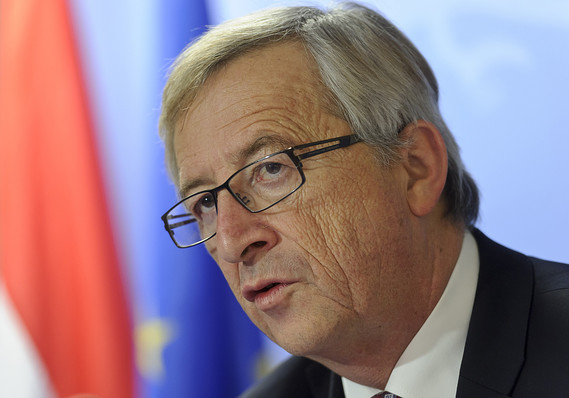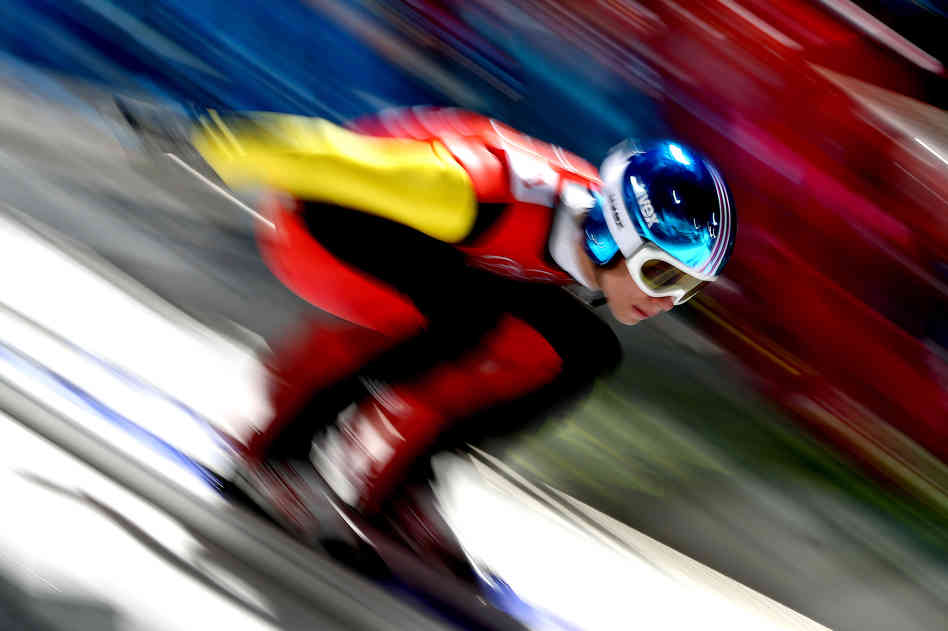Far from being unjust, the system may be too scrupulous—but also too lengthy
February 7, 2014
Old guard stifles hopes for change in European vote
February 7, 2014  i i
i i
hide captionAndreas Wellinger of Germany during ski jump practice in Sochi.
Streeter Lecka/Getty Images
Andreas Wellinger of Germany during ski jump practice in Sochi.
Streeter Lecka/Getty Images
The Winter Olympics have begun in Sochi, Russia. Along with millions of others, I’ll devote hours to watching the games over the next 17 days. (And when I’m away from the TV, I’ll follow the happenings in Sochi via The Edge and On The Road!)
Ever since I was a child, watching alongside my parents, I’ve been enthralled by the stories of individual Olympic athletes, with their incredible drive, discipline and determination. I love watching them compete.
Last month, when I watched Jason Brown in his free skate at the U.S. Figure Skating Championships — a performance that helped earn him a spot in Sochi — I rejoiced in the beauty of his art and in his happiness at skating so well. Behind the grace and the celebration I could, in my mind’s eye, catch a glimpse of all the grueling hours, days, weeks and months that Brown and other athletes devote to improving their own personal best and/or perfecting their skill level in teamwork with others.
That process is what speaks most to me. Once a bookish, nonathletic child and now a bookish, non-athletic adult, I don’t know what it’s like to spin beauty on the ice, hurtle down a frozen chute in luge or power stones with precision across the ice in a curling match. But I do know what it’s like to work hard, for years, to become better at what I do. All of us with a passion for excelling at something — our sport, our art, our science, our craft — can feel uplifted by watching Olympic athletes in competition. We may feel a special kinship with those who love the process as much as the outcome, who thrive on the journey and the experience, even if it doesn’t result in a victorious climb onto the medal stand.
Admittedly, it’s hard to separate the ideal of international harmony and joyful competitive spirit from the reality of injustices that accompany the games. Sochi isn’t by any means unique in this regard. But the 2014 Winter Games are inescapably connected to high-profile issues that go far beyond sports. Threats of terrorism and the worries that accompany those threats loom largest. But the Sochi games are also bound up with two issues that I’ve written about frequently here at 13.7: human rights for people of all sexualities and the ethics of animal welfare.
To put it mildly, the Russian government is not friendly to gay and transgender people. New laws ban the spread of information about “non-traditional” sexual practices to people under 18. As the BBC has reported, the laws are meant to make any kind of public gay rights event in Russia practically impossible. A speech by U.N. Secretary-General Ban Ki-moon to the International Olympic Committee ahead of the start of the games made clear the scope of the Russian persecution.
On the non-human side, two situations in particular are causing me concern. Despite assurances to the world that this very thing would not happen, there’s been a “culling” — that is, mass slaughter — of stray dogs around Sochi.
Two orca whales, captured from the waters north of Japan, were at first thought to be destined for exhibit in Sochi during the games. The latest information suggests that the orcas will not be put on display during the games. But they may eventually end up in the Sochi Aquarium. Neither action — toward the dogs or the orcas — is humane. And both have led to global outcry.
As a result of all this, I feel torn. Half my brain can’t wait to watch the competition unfold, while the other half feels distracted and upset by the injustices.
Some people — it’s hard to get a handle on how many, but the number appears to be few — advocate for boycotting any involvement with the games, including watching them.
I understand this response. And I certainly don’t think there’s only one “right answer” for how to react as the games unfold. My own plan is to spend the next 17 days watching and rooting for the athletes, without forgetting the context.
For me, the games are enhanced by appreciating the efforts of athletes from many nations, not just my own. Women and men from 88 countries, more than ever before, will compete in Sochi. Sometimes, sure, I’ll root for Americans. But sometimes I won’t. This isn’t the time for blinkered nationalism.
Consider just a few of the compelling stories from non-U.S. athletes competing in the Olympics:
— Vanessa Mae, a violinist who is British, will ski for Thailand, the country of her father. Two sentences of this report from the BBC say it all: “In the latest rankings, Mae is 3,166 in the world in giant slalom. Mae has long harbored an ambition to compete at the Winter Olympics.” In other words, Mae must know she has no realistic chance of medaling in her event. Rather, she has skied since childhood and, used to pursuing her dreams, has crossed over from music to sport in successful pursuit of a new goal.
— The African nation of Zimbabwe is represented at a Winter Olympics for the first time. Born in Zimbabwe, Luke Steyn fell in love with skiing while traveling in Europe and studying in the States. Somehow, I just love the fact that Zimbabwe, while seeing no snowfall in over 50 years, has an official Snow Sports Association. (A similar story unfolds from the Pacific nation of East Timor.)
— Russian athletes — as yet I haven’t learned individual names — will be among the ones to watch in the biathlon, a combination of cross-country skiing and shooting that is the most popular winter spectator sport in Europe. Following along with the biathlon competition is one good way to break out of the constant emphasis from the American media on sports most popular in the U.S., such as ice skating and skiing (and yes, I’ve been guilty of that focus, myself).
During and after Sochi, I can take all that drive, discipline, and determination alive in the athletes — and, as I have argued, in so many others of us — and turn those feelings toward the very issues that are so concerning right now in Sochi.
We can all do this, if we choose.
We can press for freedom for animals like marine mammals who shouldn’t be confined for our entertainment and for solutions to animal homelessness that involve spay-neuter programs instead of indiscriminate slaughter.
We can go even farther than wearing rainbow clothes or waving rainbow flags and support political leaders, gay and transgender rights activists and organizations that advocate for human rights. We can make loud and sustained noise — as some already have — insisting that discrimination against gay people must stop.
Because of the events that have already happened in and around Sochi, the social-justice issues I’m writing about today can’t really be disconnected from the thrill of watching these Olympics. When we turn on our TVs or turn to our computers to view ice dancing or bobsledding, we can keep the issues in our minds. We can share our thoughts and ideas, here and elsewhere, about next steps. Doing these things would honor the ideals of the games, even while refusing to look away from the world’s harsh realities.
You can keep up with what Barbara is thinking on Twitter: @bjkingape


